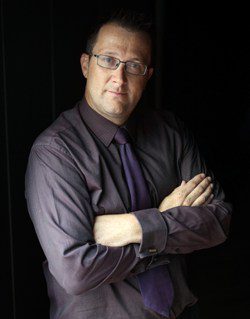Teaching cultural capital – Who decides if classical music is more ‘cultured’ than grime?

Whatever we think ‘cultural capital’ should actually look like, if it excludes the mainstream, we’ll be doing our students no favours, says Vic Goddard…

- by Vic Goddard
- Executive principal, author and star of Educating Essex

“Welcome back class. Today I want you to write about your holidays, including all of the exciting activities you did and the places you visited.”
Remember a similar lesson? Probably at primary school? I certainly do; and I also recall how truly awful it was for many of my classmates.
In fact, by the time I got to Years 5 and 6 I had concocted a plan with my friends that we would just make it all up.
This went well until one of my mates pushed it a bit too far – his description of being marooned on a desert island and rescued by a party led by the then Crystal Palace goalkeeper John Burridge wasn’t going to fool anyone!
The fact that cultural capital appears in the new Ofsted framework will undoubtedly cause a greater focus on it in our schools and, of course, on social media (I fear a drift into Brexity realms; I’ll tread carefully…).
So, is this simply the advantaged classes in our society deciding that everyone should have exactly the same kinds of life experiences as them? Or is it about protection of the important traditions and values of our country?
Legitimate interest
The phrase ‘cultural capital’ as far as I am aware, was first attributed to French sociologist Pierre Bourdieu, who defined it as ‘familiarity with the legitimate culture within a society’.
If I’m honest, though, this doesn’t help clarify my thinking, as who decides what is ‘legitimate’?
From an education perspective, cultural capital seems to have become the latest victim of binary thinking.
As co-principal of a predominantly white British school, I know that looking at what the cultural diet of the school consists of has been a focus for some time – and, in fact, today we have a cultural appreciation day looking at the myriad backgrounds that make up our community.
I very much enjoyed everyone doing the ‘Viking Thunderclap’ in our whole-school assembly after I told them that my DNA test showed a genetic connection to that part of northern Europe.
My worry is that the second guessing that is now happening in schools during the Ofsted window will lead to an entrenchment of a very narrow bandwidth of one ‘type’ of culture; therefore reinforcing our current class system rather than developing it.
This is a concern that has been heightened by people using the phrase from the essay ‘Culture and Anarchy’ (1869) by Matthew Arnold: ‘the best that has been thought and said’.
A wider view
As is often the case, I think the answer is rather more nuanced than much of the current public debate might suggest.
I would like to champion a different phrase that I can first attribute to Petersen (1992).
I think our job is to create ‘cultural omnivores’; citizens who have the knowledge and experience of mixed cultural interests.
I would hate to lose the historical and traditional forms of culture whilst recognising and experiencing the emerging ones; grime has been a source of discussion in this area over recent months.
Fundamentally, we want to help develop young people who feel comfortable in many different contexts and can feel part of conversations about various cultural experiences and knowledge.
If we as an evolving society only value a narrow form of culture this will limit access to professional and social opportunities for some of our young people.
Is it our job in schools to perpetuate this view, or should we be challenging those who decide what is ‘high culture’?
The flipside of this is that a monoculture can make the lives of a highly-cultured elite extremely different from those of the people ‘nominally on behalf of whom’ they may one day wield power” – so that understanding of each other is simply not there.
I strongly believe that creating the cultural omnivore should be our focus; where someone who does not have a great working knowledge of classical music should be no more disparaged or rewarded than the person who has no cultural appreciation of the development of emerging musical forms.
Why should we see one as more culturally ignorant as the other?
To coin a phrase that could have come off the side of a bus somewhere: ‘We need less Little Britain and more Embracing Britain’.
Vic Goddard is head Teacher at Passmores Academy – as seen on Channel 4’s Educating Essex – and is the author of The Best Job in the World (Independent Thinking Press, £14.99).










